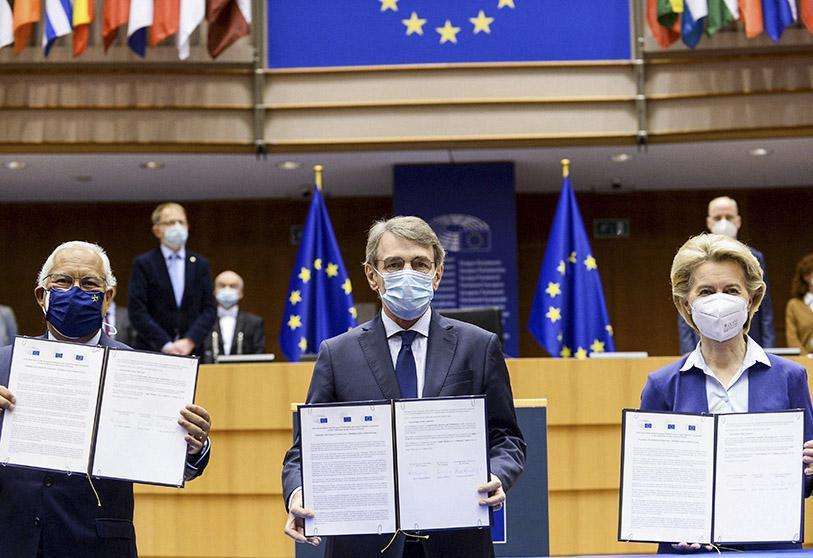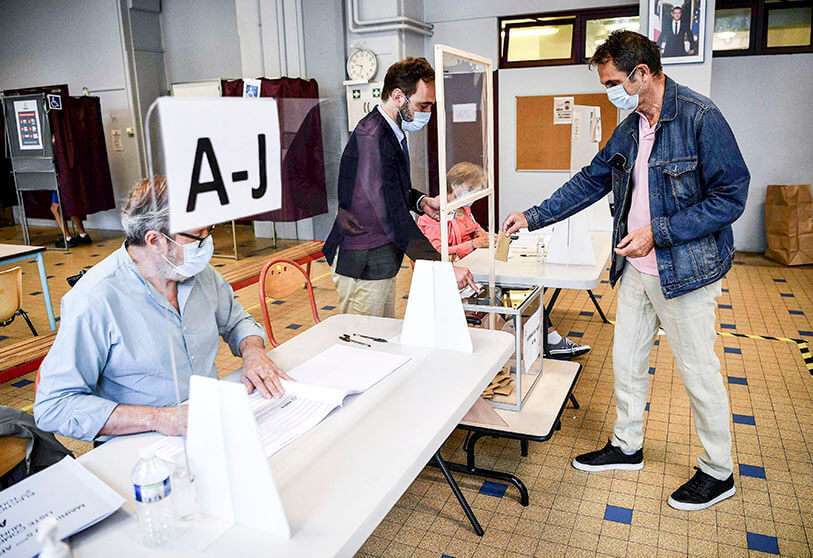In the EU, voting is more than a right

After a period of growth and enlargement, the European Union (EU) is currently facing unprecedented external and internal challenges. In this context, European citizenship, one of the fundamental pillars of the Union, is more important than ever to continue enjoying the European project, which is an immense social, cultural and economic success and a model of peace and prosperity for the whole world.
Today, all citizens of EU member countries add European citizenship to their national citizenship. This is obtained automatically and carries with it a series of additional rights and responsibilities that are enshrined in the Treaty on the Functioning of the European Union (Article 18) and in the Charter of Fundamental Rights (Chapter V).
The most prominent and recognised by citizenship are the rights of movement and residence in the countries of the European Union, the consular protection abroad provided by any Member State and the right to participate in political life - the main focus of this text.
While these are extremely important and at the time represented an unprecedented advance in the rights of EU citizens, today they are insufficient and pose many challenges. The development and deepening of European citizenship would undoubtedly lead to a stronger and more prosperous European Union, but this will only be possible if all citizens have equal rights and responsibilities.
The EU needs a true Constitution and European Citizenship that recognises equal rights for all, respects its diversity and is as inclusive as possible. It is necessary to recover the values and ideas that led to the creation and construction of Europe, to promote solidarity between states and to enjoy full representative and participatory democracy.

In particular, voting rights are insufficient in the current context. Active and passive suffrage in elections to the European Parliament and in municipal elections, which was a major achievement when it was adopted, is still largely unnoticed by many citizens today. Without information, effective communication and the full equalisation of voting rights, we will continue to have very low turnouts in elections by EU citizens resident in another Member State and very significant abstention among those who were able to register. The voice of EU residents hardly reaches the European Parliament and does not reach the governments and institutions of the Member States at all.
Let us look in a little more detail at the situation of EU residents in another EU state with regard to the elections to the European Parliament, general elections and local elections.
In elections to the European Parliament, you can choose between voting for candidates from your country of nationality or from your country of residence. Thus, there is a way to participate and influence politics from the country of residence, but renouncing to do so in the country of origin. A decision has to be made. A Spanish citizen in another state can decide to vote for Spanish candidates or for those of his or her state of residence.
At present, a citizen resident in another Member State cannot vote in the general elections where he lives, but in some cases he can still vote in his country of origin by correspondence or through the consulates. People residing in their country of nationality have full voting rights directly, but others do not, which reduces their rights. If a citizen lives in another state and pays his taxes there, he has no way of making his voice heard by the government and institutions of that state or region unless he requests the nationality of that state, and yet he can continue to vote in his country where he does not reside or pay his taxes. In the case of Spain, EU residents cannot vote in general or regional elections, unlike nationals. Likewise, Spanish citizens resident in another Member State cannot vote in their country of residence. What is the point of asking for another EU nationality just to be able to have the same rights as nationals in another territory or to wait for two countries to bilaterally decide to recognise this right? Could something similar to what is done in the European elections not be considered so that permanent residents in another Member State could vote in the general and regional elections where they live and where the decisions that most affect them are taken? Of course, while ensuring that they could not vote twice in the European and general elections in their country of residence and in their country of origin. It would not make sense to vote for the same thing in more than one country at the same time.
Finally, in municipal elections, EU citizens can vote where they reside. To do so, they must register. In the case of Spain, they must state that they wish to vote in the municipal elections on a form that is also used for the European elections and which is processed when registering in the census or directly at the Electoral Census Office. This procedure is cumbersome and makes EU citizens go through a confusing procedure, with little information and training for technicians, and which does not exist for nationals! Furthermore, if you go to the Town Hall and your registration does not coincide with the registration period for the elections, you have to make another appointment to do it later, which logically makes the process even more difficult. And of course, each municipality does it its own way! There is no common information and communication strategy.
If EU citizens could vote in all elections and be elected irrespective of their nationality and residence, we would achieve effective equality of rights: an EU of and for all citizens. This would be a great achievement.

If Europe is to continue to grow, we must ensure that all citizens have equal rights, and in this context, full voting rights are essential. If EU citizens could vote in legislative elections in the countries of residence and really influence those states and regions, Europe would be stronger and more cohesive. In 2018 there were 17.5 million EU citizens residing in another EU state, 3.4% of the European population.
Today there are more, but they are still unable to influence national policy, which is crucial if their concerns and expectations are also to be reflected in governments, institutions, policies and decisions. The solution is not to ask for more nationalities or to wait for bilateral agreements between countries that recognise citizenship rights, but to do so at the European level and directly for all citizens. The voice of EU citizens must be heard in all elections, regardless of their nationality. Voting is not only a right, it is a great responsibility, because voting legitimises and strengthens democracy. Moreover, if Europeans influence local policies wherever they live, Europe will be more Europe, and threats such as nationalism, populism and anti-Europeanism will certainly be less so and will not destabilise it and jeopardise its peace project.
Joao Piroto, editor and consultant for Relocation, president of Europeans in Catalonia and member of the Portuguese Antenna of Citizens pro Europe.
